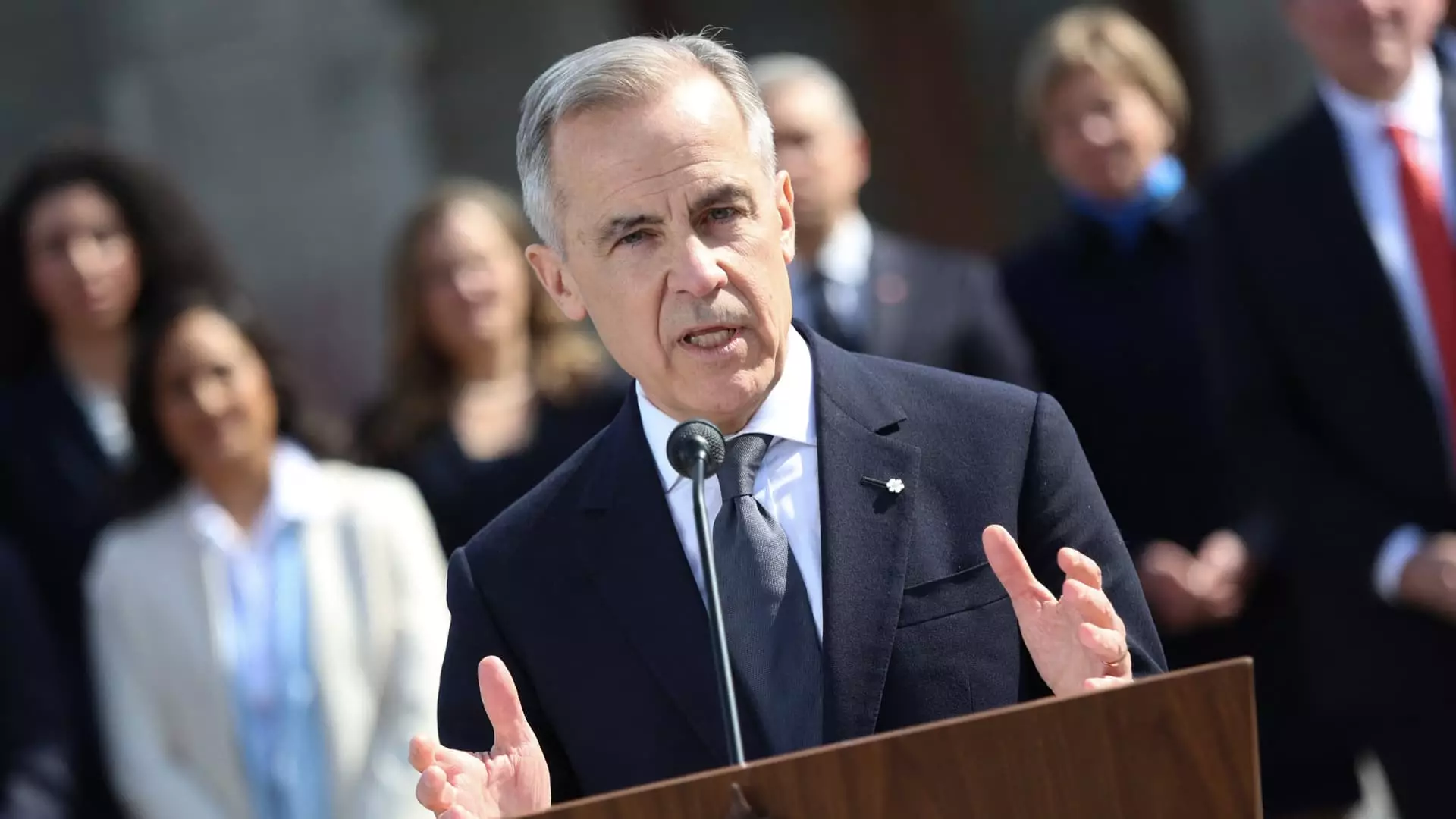In an era where national identity is intricately tied to political decisions, Prime Minister Mark Carney’s staunch rebuttal of Donald Trump’s provocative suggestions about Canada potentially becoming the 51st U.S. state is a significant statement about self-determination. Carney, who has a rich background as the former head of both the Bank of Canada and the Bank of England, stands as an emblem of strong governance and national pride. His reaffirmation that “We will never, ever, in any way, shape or form, be part of the United States” underscores a Canadian ethos that values its sovereignty above all else.
Canada has carved its distinct identity from America, not just geographically but culturally and politically. Trump’s repeated insinuations of annexation speak to a misunderstanding of the nature of Canadian society, asserting that it is one built upon ideals of inclusivity, social welfare, and public trust—qualities that starkly contrast with America’s polarized political landscape.
A Unique Cultural Identity
Canada’s cultural fabric is woven from an array of diverse threads, creating a tapestry that is both distinct and unyielding. Carney’s statement, “You would not have that cabinet in America,” highlights the richness of Canadian political diversity reinforced by multiculturalism. A cabinet reflective of the Canadian populace is a testament to the country’s commitment to representation—something that is often lacking south of the border.
The essence of Canada thrives on its ability to foster inclusivity and coalesce various ethnicities into a shared vision of nationhood. This cultural identity is irreplaceable. Carney’s insistence on “building here at home” signifies a focus on nurturing domestic growth, fostering community, and embracing multicultural identities rather than diluting them under the yoke of American hegemony.
The Economic Imperative
Carney also brings forth a powerful economic argument: “The economics means we shouldn’t.” With trade agreements that prioritize Canadian interests and a burgeoning emphasis on innovation, Canada is making strides towards self-sufficiency. The Canadian economy, characterized by its natural resources, technological advancements, and education system, does not merely benefit from American association; it stands on its own as a robust entity capable of growth without falling into the shadows of its neighbor.
The suggestion that Canada should exchange its independence for economic alliance lacks understanding of how interdependence can work. Canada’s strategy is not to become an appendage of the U.S. but to assert its position on the global stage as a respected partner.
Respect, But Not Subservience
When Carney acknowledged respect for the United States and President Trump, it illustrated a diplomatic posture poised between honor and autonomy. Respect for a neighbor should not equate to subservience, a notion that seems to elude the understanding of some U.S. officials. Canada, by virtue of its unique policies, does not require validation from America nor does it exist to fulfill Trump’s whims of territorial expansion. Carney’s remark, “We’re masters in our home,” is a rallying cry for Canadians to stake ownership over their destiny, refusing to play into external narratives and aspirations.
Historical Precedents and Future Directions
Looking back at history, attempts to annex Canadian territories or influence Canadian policy have always been met with staunch resistance. The loyalty of Canadians to their land, legacy, and livelihoods has forged a deep-rooted pride that transgresses political whims. In rejecting annexation, Canada reinforces its commitment to self-governance and societal progress on its terms.
Moving forward, the avoidance of American annexation discussions is imperative to protect Canada’s sovereignty. The nation must emphasize its commitment to sustainable development, targeted economic policy, and diplomatic autonomy. Raising a collective voice against the delusions of expansion invites the international community to recognize Canada not merely as a neighboring ally but as a formidable force in its own right.
A future where Canada remains distinct and independent is not just idealistic; it’s essential for the preservation of its values in a world increasingly grappling with global dominance and cultural dilution. Canada’s refusal to entertain such “crazy” ideas keeps its national narrative alive, rejecting hegemony in favor of genuine partnership and global respect.


Leave a Reply